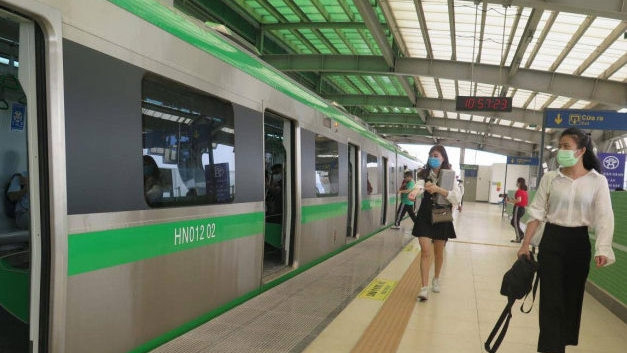The line carries more than 10,000 passengers per day on average and 15,000 at weekends. The company attributed the increase to the fact that people has found the service convenient after it has been put into operation for several months.
The resumption of business activities and the switch to a flexible adaption to the COVID-19 pandemic, along with the rising cost of fuel price are also reasons for the surge in passengers.
“The ratio of passengers using monthly tickets on the route during rush hour accounts for 70 percent,” said a representative of Hanoi Metro.
Currently, there are 54 bus routes connecting to the Cat Linh-Ha Dong urban elevated rail line, of which Cat Linh and Yen Nghia stations have 16 bus lines and intermediate stations have 8-9 bus routes.
The line started running last November. It was officially inaugurated on January 13 and welcomed the one millionth passenger the same day. With a total investment of approximately 868 million USD (up 315 million USD compared to initial estimates) and funded by China’s official development assistance (ODA), the elevated line is more than 13km long and has 12 stations and 13 trains.
Trains run every 10 minutes with a capacity of 960 passengers each train. One-way tickets cost from 8,000-15,000 VND (0.35-0.65 USD) for a trip and 30,000 VND for a day pass. A monthly pass is priced at 200,000 VND, with lower price schemes available for bulk purchases by companies or factories.
















